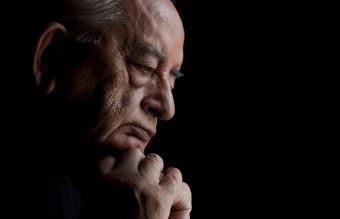
The terms grief, bereavement, and depression are often heard after someone passes away. Better understanding these terms can help you identify what you or a loved one is specifically going through after a loss.
Bereavement Versus Depression
Bereavement refers to the passing of a significant person or animal. The term depression encompasses eight diagnoses listed in the Diagnostic and Statistical Manual V, each with varying symptoms that can only be officially diagnosed by a professional mental health clinician.
Bereavement May Lead to Depression
During bereavement, an individual who has lost someone may experience symptoms of depression. This means that bereavement can directly impact one's psychosocial wellbeing. Bereavement can initiate symptoms of depression and many even lead to a clinical diagnosis if all the criteria are met. Bereavement and depression may have a direct relationship to each other in that bereavement can lead to depression. However, depression does not lead to bereavement.
Grief Versus Depression
Grief and depression may have some overlapping or similar signs that may be confusing to differentiate. One major difference between grief and depression is that grief focuses on the loss of a loved one or pet, while depression can be triggered by a myriad of different situations and tends to focus on the individual experiencing it. Depression, for the most part, can be more pervasive than grief regardless of the situation an individual is in. A sample of some differences and similarities:
| Signs of Grief | Depressive Symptoms |
| Intense focus on the deceased and desire to possibly join them | Low self-esteem, consistent feelings of worthlessness, bouts of sadness and anger |
| Denial of the loss and numbness | Anhedonia |
| Bouts of anger and sadness regarding their loss | Thoughts and possibly actions towards suicide |
| Change in appetite, difficulty with typical acts of daily living, and sleep pattern shifts | Change in appetite, difficulty with typical acts of daily living, and sleep pattern shifts |
For example, a grieving individual may feel moments of peace if they are doing an activity that brings them joy, or if they are with loved ones, while those with some diagnoses of depression can experience anhedonia, as well as consistent thoughts of low self-worth. In other words, signs of grief tend to be tinged with the loss of a loved one and symptoms of depression can trickle in coloring this painful experience, while diagnosed depression tends to focus more on the individual.
Bereavement Versus Grief
Bereavement is the period of time after someone has passed away when mourning and signs of grief may emerge. Grief is a personal experience of the loss and the unique processing of it, and can vary from person to person. During bereavement, an individual may begin the process of mourning and experience grief related symptoms such as denial of the loss, intense sadness, and anger. The bereavement period can last for any amount of time after a loss, depending on the individual's experience. A bereaved person can experience grief, and someone who is grieving can also be in the bereavement period.
Grief Versus Mourning
While grief and mourning are often used interchangeably, mourning has more to do with the behaviors or actions taken after a loss. This can include cultural and/or religious practices such as having a funeral and memorial, scattering ashes, and any other tradition that takes place after a passing. For example, during the mourning stage, one may attend a funeral and/or visit the family of the deceased to honor the loved one who passed away. Grief encompasses more of the personal process of reconciling a loss. This can include how feelings are experienced, what it's like to go back to work, and how certain social interactions may feel after the loss has occurred.

The relationship between grief and mourning means that grief can be experienced during the process of mourning, and one can be in mourning while experiencing grief. Both grief and mourning are important to experience as they help you in processing the loss and reorganizing your thoughts around the deceased, as high levels of stress that often accompany grieving are unsustainable and unhealthy to experience chronically. Doing so allows you to eventually move forward when you feel ready to do so, while continuing to honor your loved one.
Healthy Coping Methods
If you have recently lost someone you love, it's important to take extra good care of yourself at this time. You may feel overwhelmed, anxious, and tired as you process this significant moment. Know that there is no right or wrong way to process what you are feeling at this time and there are plenty of helpful resources available if you are interested in speaking with a counselor or joining a grief-focused support group. Be kind to yourself and give yourself grace to adjust to this painful experience. In most cases, pain will increase, peak, and begin to gradually decline as your brain begins to reconcile this significant shift in your life.
Identifying Subtle Differences
Being able to understand the difference between the terms grief, bereavement, and depression can give you a better handle on the situation being experienced. Labelling signs, symptoms, or a phase may help in providing some comfort and an understanding as to what may be expected or what you or a loved one are currently experiencing after someone passes away.







